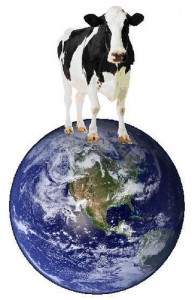Meatless Substitutes to the Rescue
 So with much resistance and complaining I’ve finally become a real vegetarian. After a few days I’m realizing that life without meat is really not as hard as I thought it would be. I feel healthier and I’ve cut down on my caloric intake. All in all I feel good about myself for being able to be disciplined enough to not eat something that I really enjoy. Who would have thought that the sustainable behavior challenge would lead to better self control?
So with much resistance and complaining I’ve finally become a real vegetarian. After a few days I’m realizing that life without meat is really not as hard as I thought it would be. I feel healthier and I’ve cut down on my caloric intake. All in all I feel good about myself for being able to be disciplined enough to not eat something that I really enjoy. Who would have thought that the sustainable behavior challenge would lead to better self control?
The hardest part about being a vegetarian is missing out on my Sunday morning bacon. My girlfriend and I usually cook breakfast together Sunday mornings and last Sunday was a sad day indeed. I also had to endure ridicule from cousins at a wedding last week, (their all essentially carnivorous and my cousin who was getting married didn’t even include a vegetarian option into the catering plans). So while they feasted I had specially order a veggie dish and I was brought rather sorry looking pasta with a few ragtag veggies thrown into it. #Firstworldproblems.
The most positive thing thus far about my behavior change has been my new found love for meat-less meat substitutes! I am at Wegmans quite often and they have an excellent selection of all different kinds of meat-less meat. The substitutes are generally made out of soy or soy derivatives and are not organic and thus they probably contain GMOs. So while it may be better for the environment and better for me not to eat animals (which are generally fed GMO grain feed anwyay), my replacement for the meat is probably quite bad for me too.
Time and time again when thinking about the sustainability implications of not eating meat I always turn to meat eatings relationship with global warming. In this Guardian article Suzanne Goldberg touches on the impact that a global shift in eating habits could have on the climate. She also says, it may not be up to us, we may not be able to keep up this incredible pace of meat production and consumption because if it continues we could be facing catastrophic global warming by 2050. On that happy note I’m signing off!
Photo source: animalvoices.org
Leave a Reply